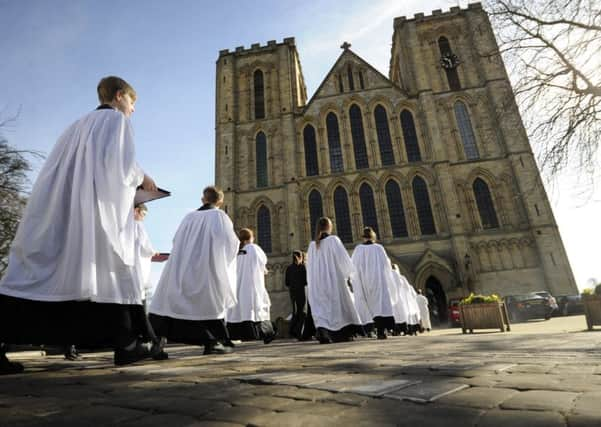The Dean's Reflection column with the Very Rev John Dobson


It also reminds us that there is the need for wise politicians who are able to be led by sound moral judgement.
And in a region with some significant military bases, we can be grateful that we have armed forces personnel prepared to risk their lives for the well-being of this nation and the wider world.
Advertisement
Hide AdAdvertisement
Hide AdIt is clear, lamentably, that the need for their services will not diminish in the foreseeable future. So, in the cathedral we have been doing much praying for our political leaders and our armed forces. We have also continued to celebrate Easter.
I couldn’t help noting the sort of questions that people were asking in relation to the unfortunate events in Salisbury with Sergei Skipal and his daughter Yulia. The good news is that they survived the attack on them. But people were full of questions and doubts.
For example, could this have happened at the direction of the Russian state?
I was also struck by how similar some of the questions about the credibility of claims and counter claims in this instance were to those about the resurrection of Jesus Christ from the dead.
Advertisement
Hide AdAdvertisement
Hide AdLike all the churches in the region and around the world, we are still celebrating Easter at the cathedral.
This involves us listening again in services to the gospel accounts of the resurrection, written to convince others of their claims. They tell of the empty tomb, of the disciples and their companions encountering the risen Christ, and of him suddenly appearing and disappearing yet showing his wounded hands and side.
This was clearly their friend who had been put to death, yet now alive in a new and fuller way, and still maimed by his wounds. There was much for the disciples to take in. How would anyone believe them?
A famous gospel story that addresses this question of credibility, and the fact that the early disciples themselves had doubts, is that of Thomas. According to St John, Thomas wasn’t with the other disciples when they first saw the risen Lord. He said he would need to see for himself and touch Christ’s wounds before believing.
Advertisement
Hide AdAdvertisement
Hide AdA week later, Thomas was with the group when Christ appeared again.
This time he could accept, famously exclaiming: “My Lord and my God.”
The debate about the Salisbury attack was a reminder that there is a question about how we believe anything and how we overcome our doubts. Actually, we only manage to make any sense of the world day by day by being discerning about whom we trust and what evidence we accept.
Do we only believe experts? Then which experts? Do we only take note of our own experience? Do we believe that the reality science tells us about is the only reality that exists in and beyond the universe?
Advertisement
Hide AdAdvertisement
Hide AdIn life we have to learn to trust, and become discerning about what and whom we trust. And we have to learn how to use our doubts to lead us into fuller truth.
At Easter many of us Christians acknowledge our doubts and also celebrate our trust in God. The truth, it seems to us, is that the evidence of Jesus’s resurrection shows that God’s love is stronger than death and human frailty.
A comforting thought in a sometimes worrying and unstable world.